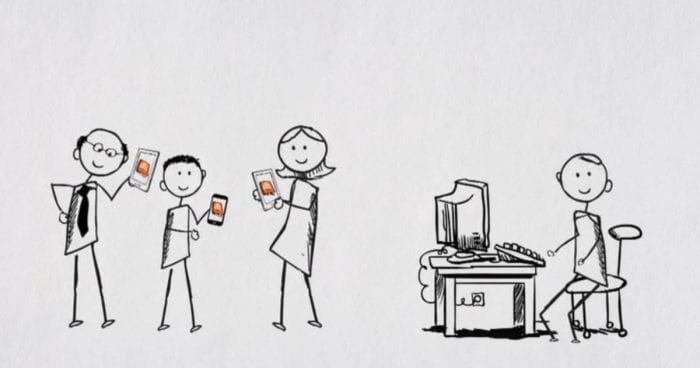How Amazon Could Fix Its Plagiarism Problem
And why it never will...

Though self-publishing has been a boon for many authors and a great way to either get started or to grow an already successful career, the Cristiane Serruya Plagiarism Scandal has shown how easily abused the system can be.
Serruya, despite having published some 30 books, does not appear to have wholly written any of them. Instead, according to the editor she hired for one of her works, she simply cobbled together a mess of material from other sources (likely getting help from low-cost ghostwriters) and then paying others to edit or clean up the resulting mess.
The problem is that, as horrifying as Serruya’s story is, she’s likely far from alone. Serruya is simply the author that got caught and, much like a fish caught on a hook, is just one part of a thriving ecosystem below the surface.
Authors and readers alike have known this for some time but Serruya’s case has brought a new attention to it.
One such example of that attention is the popular author Nora Roberts who, in a recent blog post, said to such plagiarists, “Enjoy it while it lasts, because it’s now my mission to turn over the rocks you hide under, then stomp you deep in the muck you breed in. To the black hats who exploit, steal, tutor others to do the same, your day of reckoning’s coming.”
But, even as she promises reckoning to those who plagiarize, she also acknowledges the likely futility of it saying that, “If they’re caught, they simply go under, regroup, come back and do it all again.”
But, while authors may struggle to combat this kind of abuse, there is one company that does have the power to take action: Amazon.
Unfortunately though, Amazon is also the least likely company to actually do anything. This is because Amazon doesn’t just want to avoid the labor and cost addressing this issue, but it actively benefits from the system being as broken as it is.
How Amazon Could Tackle Self-Publishing Plagiarism

When it comes to self-publishing, Amazon is uniquely positioned to address the issue of plagiarism. As both the owner of the largest book store and the largest self-publishing platform through Kindle Direct Publishing (KDP), it’s an extremely powerful gatekeeper.
The problem is that no one is actually keeping the gate.
Though Amazon will block books that are identical to other works they have on file, in particular if the work is a public domain work they have freely available elsewhere, Amazon doesn’t do much to vet the books it publishes. Plagiarism isn’t even mentioned in its KDP help files.
What this means is that it’s trivial to publish almost anything you want regardless of the quality of the work or, in these cases, how original it is. In fact, many complain that Amazon fails to vet works for even simple issues such as formatting and layout.
Though Amazon will, sometimes, remove works that violates their terms of service after they get complaints, they’re happy to sell the books and reap the profits until they get such a notice.
And, from Amazon’s perspective, this is completely legal. They are protected by the Digital Millennium Copyright Act (DMCA) as well as other laws, in particular Section 230 of the Communications Decency Act, that basically mean they are under no obligation to vet or check the works they publish.
They are legally free to produce and sell books, physical and digital, regardless of whether they are plagiarized, copyright infringing or otherwise illegal.
Though these protections play a role in enabling this marketplace to exist, it also enables the widespread abuse of it. Plagiarists like Serruya could easily be prevented but Amazon has no obligation to do so and, given the money they’ve made off of her books, have even less reason to do so.
Still, it doesn’t have to be this way. Amazon has a very simple solution right in front of it that would greatly reduce plagiarism. However, it’s unlikely that they’ll ever take.
The Easy Answer

Amazon doesn’t just control two of the most important platforms when it comes to self publishing, it also has one of the largest databases of content in the form of its Kindle library.
With such a large library, it would be relatively trivial to add a plagiarism detection layer to the submission process. The process, most likely, could be largely automated as most books shouldn’t raise any red flags through an automated analysis. However, the report should always be available for any human editor that is working on the book as sometimes a low percentage can hide a much bigger problem.
For books with a larger percentage, it shouldn’t mean an automatic ban. There are many legitimate reasons why a book might have a higher value of matching content including:
- Author republishing their own work, either material that was available online or in a previous book. Possibly a new edition of a previous work.
- Public domain works that comply with Amazon’s policy.
- A new work legitimately based on a previous work, such as bringing on a new co-author.
- Computer error or other technology issue.
- A case where the original work entered the system after a plagiarized copy.
In short, this would require a human to step in, look at the plagiarism report, work with the author and determine if the work is a plagiarism or if it’s something innocuous. Either way, it’s not going to be a quick process.
And that’s where the problem comes in. To make this work, Amazon can’t just apply a technology layer and wash its hands. It needs to hire people dedicated to this task. However, that is famously out of character for Amazon.
After all, this is the same company that places near-impossible restrictions on its most crucial employees. For it to hire a small army of workers for a task that’s as nuanced and time-consuming as plagiarism evaluation, its nearly unthinkable.
Still, it’s probably the only way there ever could be a real solution to this problem. Sadly, it doesn’t look like it’s going to happen.
That is, unless the legal landscape undergoes a dramatic shift. However, that too is unlikely.
While the upcoming EU Copyright Directive might seem like a good opportunity for that, Amazon has already been excluded. Article 13, which requires hosts to prevent the uploading of infringing material, carves out a large exemption for sites like Amazon that are marketplaces for selling physical goods.
Amazon, the site that may need this standard most of all, won’t be held to it.
In short, Amazon has the ability to curtail much of this problem but is unlikely to ever do so. There’s simply no reason for them to and the odds of that changing are slim to none at this time.
Bottom Line
To be clear, this wouldn’t completely fix or stop the plagiarism problem on Amazon. There are types of plagiarism that detection services can’t spot and there are ways to circumvent such services.
However, this layer would still be an important one. Serruya wasn’t just able to slip a few books by Amazon. She was able to publish dozens of books that were, in general, well-liked by her readers. She didn’t just publish a bunch of garbage in hopes of finding a few rubes to purchase it, she built a career.
That should not be possible. Sure you can circumvent plagiarism detection tools but it is nearly impossible to do that while having well-written content that’s easy to produce. You either have to plagiarize less, spend far more energy editing the content or risk your writing being incoherent.
In short, Amazon may not be able to stop plagiarism but it can stop this kind of plagiarism. It’s an egregious kind where, with minimal effort, a “writer” build a real career for themselves until they are called out and it all comes crashing down.
Without this check and balance Serruya will not be the only such author. The cycle of building careers to watch them burn will repeat. We saw this back in 2012 with the erotic literature field and we’re just going to see it again and again and again.
And Amazon won’t do anything about it. Not only because it would take resources for them to but because they are profiting from the status quo.
Amazon doesn’t really care about the authors that are plagiarized and there’s no one who can really make them start.
Want to Reuse or Republish this Content?
If you want to feature this article in your site, classroom or elsewhere, just let us know! We usually grant permission within 24 hours.
